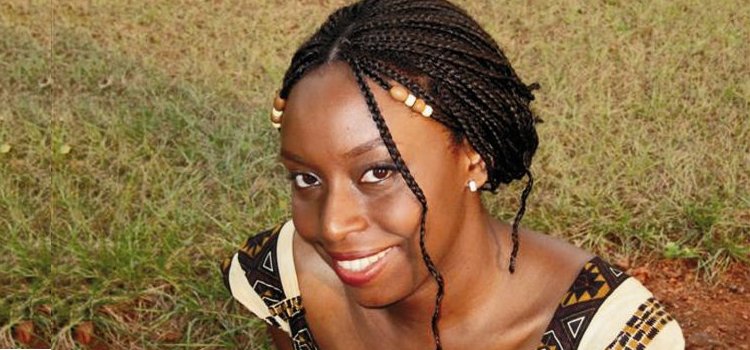
Nigeria’s incredible line of writers from Chinua Achebe to Wole Soyinka and Buchi Emecheta seem to have passed on their amazing talents to writers of the younger generation like critically acclaimed writer Chimamanda Ngozie Adichie. This 29 year-old U.S.-based novelist released her second novel, Half of a Yellow Sun in September with Knopf Publishing Group.
Early beginnings
At an age when most kids dreaded spelling B moments with their parents, Adichie had already discovered a sense of “fulfillment” as she describes it, in writing. By the age of 21 she had published a collection of poems entitled Decisions and For Love of Biafra, the latter expanded into her latest novel based on the 1967-70 Nigeria-Biafra civil war. “The war particularly is so central to my family and to Nigeria as a whole and I wanted to write about a period in our history that I think continues to be important,” she says.
Adichie is the fifth of six children and her parents and two other siblings live back home in Nigeria while the others live in London and the United States. Growing up around high academia turned out to be very constructive; her father worked as a Vice Chancellor at the University of Nigeria and her mother as a lecturer at the same place.
After two years of studying Medicine at the University of Nigeria, she migrated to the U.S. on a scholarship to Drexel University, Philadelphia, for Communication studies. Adichie eventually transferred to Eastern Connecticut State University where she graduated summa cum laude in 2001 with a degree in Communications and Political Science. She went on to attend Johns Hopkins University, Baltimore, where she acquired a master’s degree in Creative Writing.
By 2003 she had published her very first novel Purple Hibiscus, a book she began to write while still a senior at Eastern Connecticut State University. It was shortlisted for the Orange Fiction Prize in 2004, a prestigious British literary award open to commonwealth authors. Adichie also received Best First Book at the Commonwealth Writer’s Prize in 2005 and was nominated for twelve other literary awards of which she has won six.
The effortless writer
This artistic writer presently attends graduate school at Yale University, this time she is taking on African Studies and divides her time between the United States and Nigeria. Her knack for creating realistic characters is only a tinge of her writing aptitude. Chinua Achebe says of her latest novel, “We do not usually associate wisdom with beginners, but here is a new writer endowed with the gift of ancient storytellers”… “She is fearless, or she would not have taken on the intimidating honor of Nigeria’s civil war. Adichie came almost fully made.”
The novel which recounts the events of the Nigeria-Biafra war in fictionalized truths takes the reader into the lives, hearts, and minds of the victims, evoking nothing but heartfelt sympathy.
The horror of the war which left about 2-3 million people dead either to illness, starvation or otherwise still lives in the hearts and minds of many Nigerians, even to a generation who may not have experienced it first-hand. “My writing is part craft and sort of part something I can’t entirely explain. What I do mostly when I write is that I want to keep it as human as possible,” she says.
Indeed, writing seems to come as naturally as breathing for Adichie. The emotions it evokes in her appear to be profound enough to exceed a mere appreciation for the art of it. “I find that without sounding too knowing, I was meant to write…when the writing is going well, it makes me really happy.” She then adds, “but on the other hand, it makes me really sad when it’s not going well.”
To her, writing was never something she deliberately had to set time aside for. She has always had a genuine passion for it. One of her favorite things to do is to “carefully” observe people, something that comes across perfectly in her work.
Besides reading and writing nothing else seems to gratify Adichie. “I have an incredibly boring life…there’s nothing else I can do well,” she laughs.
Unlike most people, Adichie believes in taking life as it comes and tries very hard to refrain from planning too much. “In some way, it’s my way of being safe—if I don’t plan too much, then I won’t be disappointed,” she says convincingly. But one thing she knows for sure—that in ten years she will still be writing.






